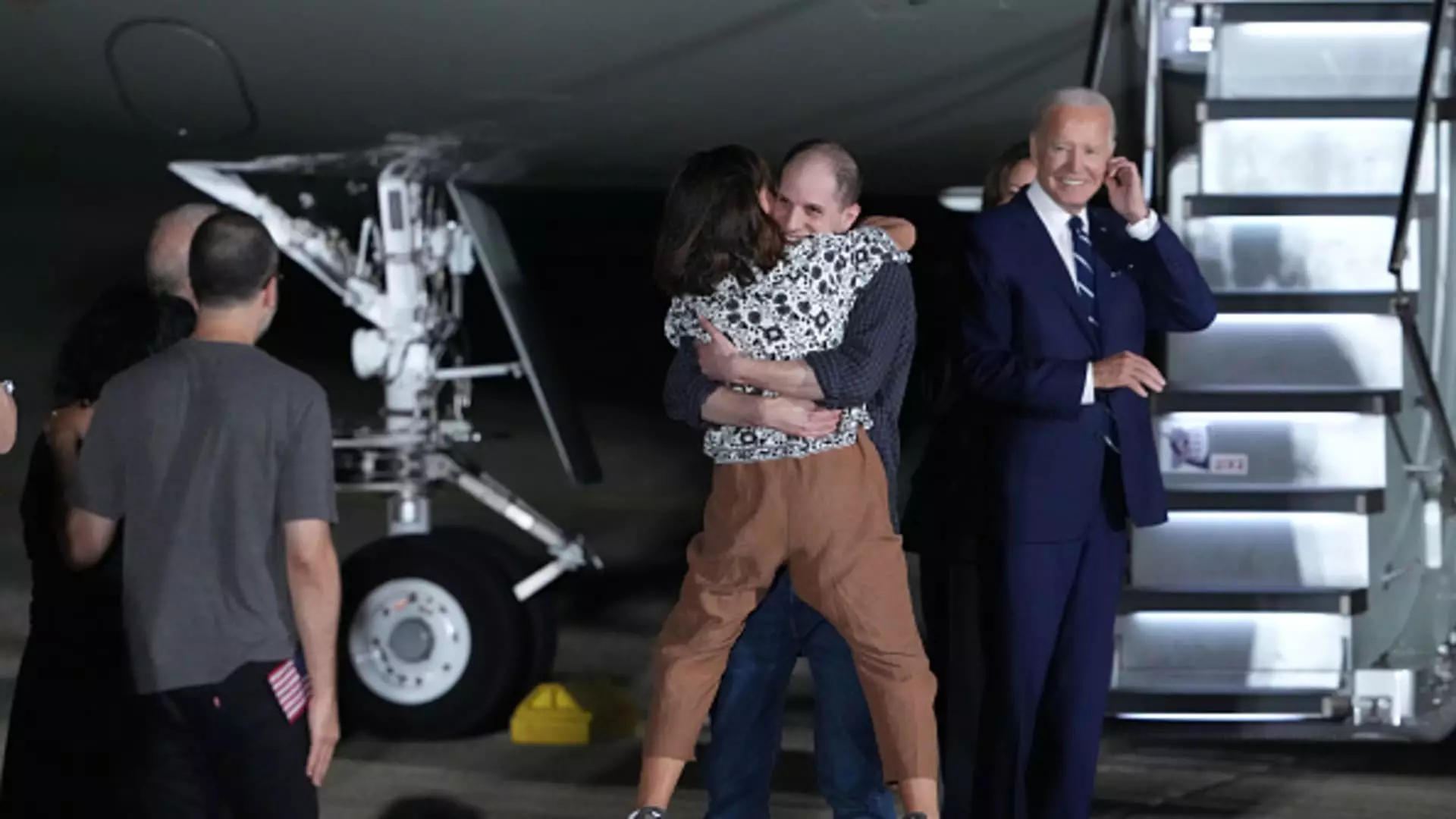On a notable Thursday, a landmark prisoner exchange unfolded when four individuals, including notable Wall Street Journal reporter Evan Gershkovich and former U.S. Marine Paul Whelan, were released from custody in Russia as part of a multifaceted international negotiation. In a ceremony at the White House, President Biden, standing with the families of the released individuals, emphasized the long-standing injustice faced by these prisoners. “All four have been imprisoned unjustly in Russia,” he noted, marking the release a moment of hope for advocates of human rights and diplomatic resolutions.
The exchange was unprecedented, involving not only American citizens but also foreign nationals, such as British-Russian activist Vladimir Kara-Murza, who has been an outspoken critic of the Russian government. Additionally, the swap included the release of five German citizens and seven Russian citizens, all of whom faced dubious charges in Russia. The complexity of this arrangement underscores the intricate web of international relations and the urgent necessity for cooperation among nations in addressing human rights issues.
The negotiations surrounding the exchange were described as “historic” by White House national security advisor Jake Sullivan. He stated that such a large-scale exchange, particularly in the context of ongoing tensions between the U.S. and Russia, had not been witnessed since the Cold War. This exchange involved multiple countries, showcasing a united front among U.S. allies who collaborated to facilitate the release of political prisoners, thus offering a glimmer of hope for diplomatic resolution in a strained international landscape.
Key to the success of these negotiations was the return of Vadim Krasikov, a convicted hitman implicated in the murder of a former Chechen militant in Berlin. According to Biden administration officials, the release of Krasikov was a pivotal element in convincing Russia to agree to the extensive exchange. This transaction reflects a delicate balance of power and the lengths to which nations will go to protect their citizens and their interests.
Both Gershkovich and Whelan had endured harrowing experiences in Russian prisons. Gershkovich, who was arrested on espionage charges in March 2023 and condemned to a staggering 16-year sentence rumored to be based on fabricated evidence, represented the chilling consequences faced by journalists operating under oppressive regimes. Meanwhile, Whelan, already serving a 16-year sentence for similar accusations since his 2018 arrest, symbolizes the broader ramifications of geopolitics on individual lives.
President Biden’s remarks on the suffering endured by these individuals underscore a profound reality: the toll of political machinations goes beyond mere statistics. “Some of these women and men have been unjustly held for years. All have endured unimaginable suffering and uncertainty,” Biden stated during his announcement. His acknowledgment of their plight reframes the narrative from one focused solely on political maneuvering to one that recognizes the humanity at stake.
The return of these individuals serves as a reminder of the potential for diplomacy to effect change, even amidst adversity. With the successful conclusion of this exchange, there is hope that it can pave the way for a more collaborative approach to international relations and human rights advocacy. In a world increasingly divided by ideologies and conflicts, moments like this offer a pathway to reconciliation and understanding.
While the immediate narrative focuses on the relief experienced by the families of the released individuals, it also raises essential questions about the future of U.S.-Russia relations. How this exchange will influence diplomatic ties remains to be seen. However, the commitment of nations to work together for the sake of justice and human rights is a powerful message that reverberates far beyond the confines of political structures.
In sum, the historic prisoner exchange is not merely a transaction of individuals; it is a demonstration of the power of solidarity in an era rife with challenges. The ultimate hope is that in recognizing the humanity in each other, nations can foster a future where such injustices are far less common.


Leave a Reply